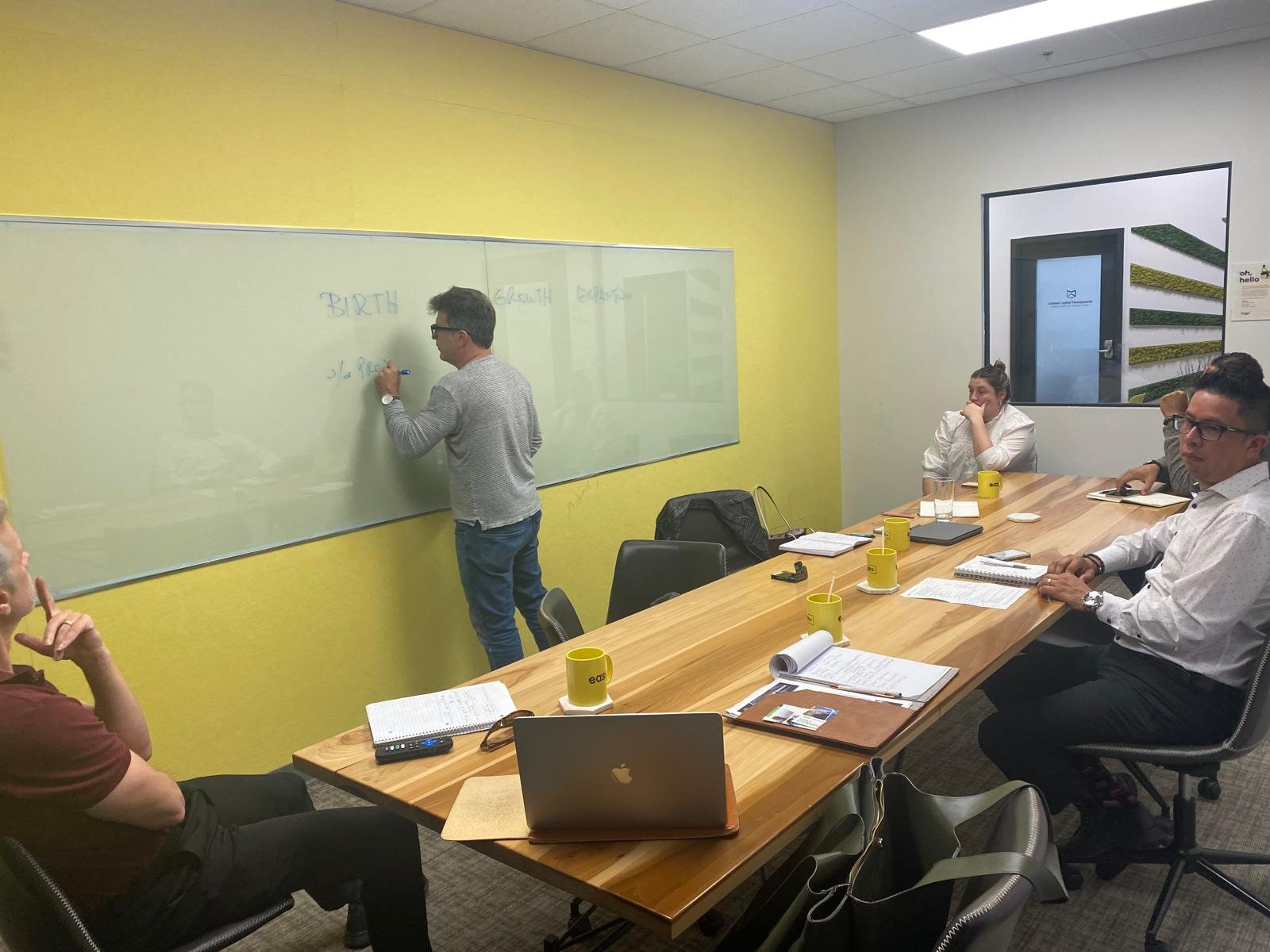
The Identity Trap: Breaking Free From Career-Defined Self-Worth
When you’re unexpectedly asked to separate from the role you’ve built your identity around, the loss cuts deeper than financial instability. It strikes at your very sense of self. That was the moment I realized just how much of my identity I had tied to my career. The journey that followed was one of the most challenging, yet liberating, experiences of my life. It took nearly a year of deep introspection, mindset shifts, and relentless positivity to understand that my career was not who I was. That realization changed everything.

No Regrets, No Despair: Take Action Now!
Time is the one resource we cannot renew. It ticks away at a steady pace, disinterested in our circumstances, and utterly unforgiving when wasted. And yet, many of us procrastinate, stall, or waste time, hoping there will be more tomorrow. But here’s the hard truth we all ignore: there won’t be. The time you have today is irreplaceable, and how you use it determines the trajectory of your life.

Why a Positive Mindset is the Missing Key to Unlocking Productivity in 2025
Productivity advice is everywhere. Articles, books, podcasts, and online courses promise to help us get more done in less time. Recently, an article outlined five critical productivity skills for 2025: digital literacy, time management, adaptability, emotional intelligence, and critical thinking. While these skills are undoubtedly important, there’s one key element missing from the list—an element without which these skills cannot fully take root or produce lasting results: a positive mindset.
As a co-creator of the MindFlow Cycle program, which helps leaders and entrepreneurs overcome overwhelm and enter a flow state on demand, I’ve observed time and again that without a positive mindset, even the best productivity strategies fall flat. Let’s take a closer look at each of these skills and see how cultivating a positive mindset is essential for mastering them.

How to Leverage Feedback for Better Facilitation Outcomes
Facilitation is both an art and a science. It requires a deep understanding of group dynamics, the ability to manage diverse personalities, and the skill to guide conversations toward meaningful outcomes. While preparation and expertise play significant roles, feedback is the secret ingredient to continuously refining your facilitation approach. When used effectively, feedback not only enhances your techniques but also fosters trust and collaboration among participants. Here are some practical ways to leverage feedback for better facilitation outcomes.

Changing the Productivity and Work-Life Balance Paradigm
At its core, the MindFlow Cycle is a deliberate process of aligning flow, the optimal state of engagement and performance, and mindset, the foundation of belief and intention. This approach is uniquely suited to leaders because it doesn’t just focus on achieving success but on sustaining it through adaptable and human-centered strategies.

Is Your Leadership Team Stuck or Growing? The Difference Lies in Mindset
In today's unpredictable business landscape, marked by natural disasters and shifting political climates, the ability to adapt and thrive is more important than ever. Yet, many leadership teams find themselves stuck in rigid thinking patterns that stifle creativity, hinder team performance, and limit long-term resilience. The key to breaking free? Developing a growth mindset.

Take Control of Your Time, Take Control of Your Life
In today’s fast-paced world, time feels like a luxury few of us can afford. Work piles up, emails ping constantly, and meetings devour hours of our day. Yet, amidst the chaos, some people thrive. How do they manage it? They’ve mastered the art of time management. If you’re tired of feeling like you’re barely treading water, you’re not alone. But here’s the good news: you can regain control.

4 Strategies of Top Leading CEOs
Drawing from global studies and meaningful conversations with business leaders, the insights from these researchers offer a roadmap for navigating the complexities of the modern corporate landscape. By focusing on real-world experiences and data, this research sheds light on the mindsets and practices that allow CEOs to continually reinvent their organizations and succeed, even in the toughest circumstances.

Checklist for Leading Remote Teams Effectively
Checklist for managing teams remotely. If you want to manage your time better, then, you must ensure you are managing your team effectively. Nothing wastes time like holding the hands of team members who are not aligned to your goals.




The Power of Feedback in Leadership: Tips for Giving and Receiving Constructive Feedback
Feedback is an integral part of effective leadership, acting as the backbone of both personal and professional development. As a leader, mastering the art of giving and receiving feedback is not only necessary but also essential to fostering a culture of continuous improvement. Constructive feedback empowers individuals to grow, increases trust, and strengthens team dynamics.

Vulnerability isn’t a weakness—it’s your leadership superpower.
Vulnerability, once seen as a weakness in leaders, is now being recognized as a powerful tool that can foster trust, innovation, and collaboration. Leaders who embrace vulnerability demonstrate the courage to be honest, the humility to admit their limitations, and the strength to connect with others on a human level. In reflecting upon my own journey, it is the staff who experienced my vulnerability who continue to be close associates and great connections long after I departed their organizations. In this article, we explore the role of vulnerability in leadership, with examples from renowned leaders who have successfully incorporated it into their leadership styles.

Checklist for Leading Remote Teams Effectively
Leading remote teams comes with its own set of challenges compared to managing teams in a traditional office. As someone who’s navigated the world of remote work and leadership, I’ve put together a handy checklist to help you lead your remote teams more effectively. Use this guide to create a supportive and high-performing environment for your team, no matter where they are.

The Essential Role of Emotional Intelligence in Leadership: Insights and Practical Tips
In the rapidly changing landscape of modern business, leaders regularly face intense challenges, make difficult choices, and lead varied teams. While expertise and traditional leadership skills are still crucial, emotional intelligence (EQ) has become one of the most vital traits for building successful teams and ensuring long-term business success. Recent studies indicate that leaders with strong emotional intelligence are better at motivating their teams, enhancing productivity, and managing the complexities of modern organizations.

A Guide to AI-Driven Coaching Strategies for Leadership Development
In an ever-evolving, fast-paced landscape, effective leadership has become paramount for organizational success. Traditional coaching practices, while beneficial, often struggle with personalization and scalability. Enter Artificial Intelligence (AI) — the game changer in leadership coaching. This guide delves into how AI-driven coaching strategies can empower organizations to cultivate strong, adaptable leaders through personalized insights, real-time feedback, and accessible resources.

The Future of Leadership: Embracing AI in Coaching
How can you start shifting your clients' mindset? Here's a real-world example that breaks down the process. Between 1999 and 2003, I led a team of customized industry training experts at a community college in North Carolina. Our goal was to increase enrollment by offering training to companies that either hadn't worked with us before or hadn't worked with us in a long time. Our objective was simple: sell more training, increase enrollment, and ultimately boost our income. To achieve this, we aimed to meet with 40 new companies in our service area.

Change Your Clients' Mindset
How can you start shifting your clients' mindset? Here's a real-world example that breaks down the process. Between 1999 and 2003, I led a team of customized industry training experts at a community college in North Carolina. Our goal was to increase enrollment by offering training to companies that either hadn't worked with us before or hadn't worked with us in a long time. Our objective was simple: sell more training, increase enrollment, and ultimately boost our income. To achieve this, we aimed to meet with 40 new companies in our service area.

Embracing Hybrid Work: Leadership Strategies for a New Era
The workplace has experienced a dramatic transformation over the past few years, with hybrid work environments emerging as one of the most significant changes. What started as a temporary solution for remote work has become a lasting reality. This blend of in-office and remote work is not just a trend but a new norm. As leaders, we now face the challenge of adapting our leadership style to successfully navigate this new landscape, prioritizing flexibility, adaptability, and effective remote team management.
